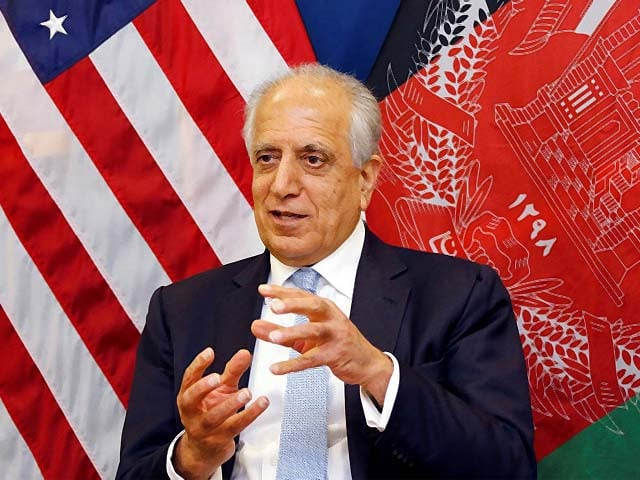US Special Representative for Afghan Reconciliation Zalmay Khalilzad just resigned after three years in his post and will be replaced by Deputy Special Representative Thomas West. This was the right move to do for several reasons, the most obvious of which is that his role is redundant after the Taliban’s successful takeover of Afghanistan in mid-August. Not only was this a professional embarrassment for him, but Khalilzad also must have been personally disappointed by everything and simply might not have had the will to continue in his post.
The revolutionary situation that took place two months ago meant that it was time for the US to appoint someone new as their point person for engaging with the country’s de facto leaders. Khalilzad’s association with the failed intra-Afghan peace process and the US’ chaotic withdrawal that followed stained his legacy and made meaningful cooperation with the Taliban in this new reality much more difficult to achieve. It’s natural for a new face to be associated with a new reality, hence another reason for his resignation.
That aforesaid reality is one in which the US lost its on-the-ground and military leverage with the Taliban. The only influence that it still retains over the group is financial after the government froze that country’s accounts within its jurisdiction and pressured the financial institutions under its influence, the IMF and World Bank, to suspend aid to Afghanistan. This Machiavellian move enabled the US to retain significant sway when it comes to influencing the course of that country’s future.
America will now practice a mix of conventional and economic diplomacy in Afghanistan. The first-mentioned is self-explanatory and relates to traditional diplomatic dealings while the second refers to the newfound financial leverage that it exerts over that country. The interplay between these two forms of diplomacy is intended to influence the Taliban to make good on its prior promises of ethno-political inclusiveness and respect for minority and women’s rights.
Be that as it may, the US still doesn’t have the same influence that it did just a few months back due to how much everything has changed since then. It’s possible that its role could be sidelined if regional stakeholders have the political will to coordinate multilateral assistance to Afghanistan instead. The US’ chief diplomatic challenge is therefore to remain relevant to this process amid such possible geo-economic competition by not pushing the Taliban too much to the point where the group no longer really cares what America says.
The carrot that the US can potentially dangle before the Taliban is to significantly invest in in the PAKAFUZ railway, which refers to the project that was agreed to in February by Pakistan, Afghanistan, and Uzbekistan. This prospective corridor serves multiple mutually beneficial geo-economic functions for those three countries, Russia, China, and the US. It’s in America’s best interests to not surrender its possible role in PAKAFUZ to its Russian and Chinese competitors, which could happen if it pushes the Taliban too hard on reforms.
Although the US doesn’t formally recognise Afghanistan’s de facto Taliban-led government, it still pragmatically engages with it. This could result in the US accepting the group’s informal participation in the “New Quad” that was unveiled in late July between itself and the three PAKAFUZ countries. That new diplomatic network is focused on expanding regional connectivity, which complements that earlier described railway project and provides another value-added benefit to the US retaining pragmatic relations with the Taliban no matter what.
With Khalilzad out of the picture, his successor has the chance to flexibly adapt to the new reality that he inherited in order to advance American interests in post-war Afghanistan. He of course can’t act without higher approval which means that it’s incumbent that he’s granted such otherwise the US risks losing out in the “Great Geo-Economic Game” that’s unfolding in this geostrategic trans-regional space. It’ll remain to be seen whether its approach will evolve in light of these new challenges, but everything should become clearer soon.



COMMENTS
Comments are moderated and generally will be posted if they are on-topic and not abusive.
For more information, please see our Comments FAQ